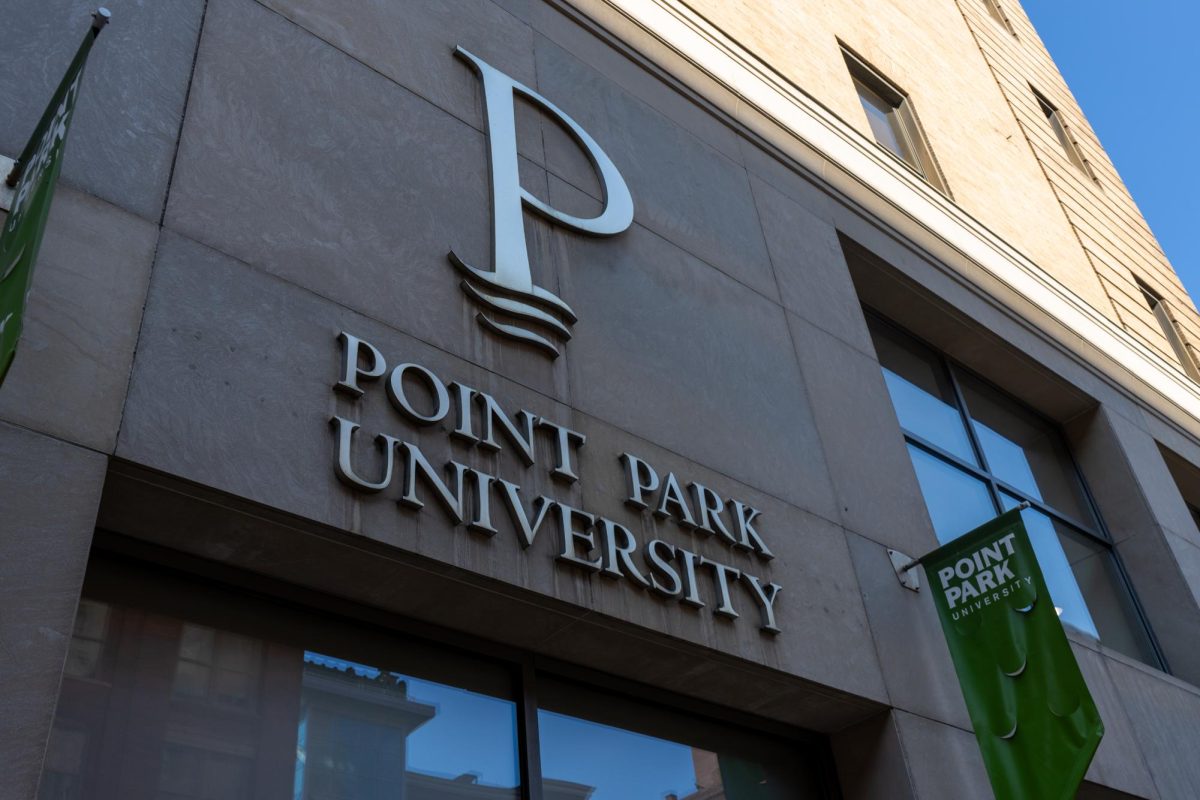
In Jan. 2013, two Carnegie Mellon University (CMU) professors found during a pilot study on the parking rates in the streets and lots on campus that if they used the law of supply and demand by raising prices where many parked and lowering where little did, they could cause the average cost of parking to decrease, while still raising revenues.
Now, in the face of sharply increased parking rates Downtown that have angered and inconvenienced users, the duo are taking the same principles that could ease rates for commuters to Point Park University.
“If it works, that’s awesome. It would be helpful to make it easier on people. [Parking] is really hard on commuters and turns people away from Downtown,” Abby Blankenship, a senior commuter, said.
When multi-space kiosks that accepted credit cards took the place of coin-operated machines for parking in the fall of 2012, CMU professors Mark Fichman, an associate professor of organizational behavior and theory, and Stephen Spear, an economics professor, still felt that more could be done to the parking rates to create an equal balance of spots used, which would also fluctuate prices.
After receiving permission to set the rates around CMU by the school and the Pittsburgh Parking Authority, Fichman and Spear conducted a pilot study on the campus.
“Basically speaking, Stephen and I have been deciding on the pricing based on some basic economic principles: we would lower prices where no one was parking until the parking spaces filled up, and if parking was too full, we raised prices,” Fichman said during a phone interview.
Their target was set out for about 80 percent of parking spots to be occupied so that people were not driving aimlessly looking for a place to park, and they have successfully been able to hit it over the past two years.
The average price on campus had then gone down from $2.25-$2.00 to $1.00-$1.25 during the school year and about $1.50-$1.75 in the summer. Also, the overall revenue went up from around $55,000 in Sept. 2012 to approximately $90,000 in Sept. 2014, according to the researchers.
Looking at their achievements in the study at CMU, Fichman and Spear now wish to apply their principles to the parking areas Downtown. These areas would include the on street parking, lots run by the Parking Authority, and the surface lots down East Carson Street.
“Right now, it becomes a political thing. We have been fishing to the Council and trying to persuade people on City Council…It is their decision and they have to give that up and let the Parking Authority run it,” Fichman said.
If all works out with the City Council, the professors presume they will continue with the Downtown study for about two years as they did at CMU and go from there depending on the outcome.










